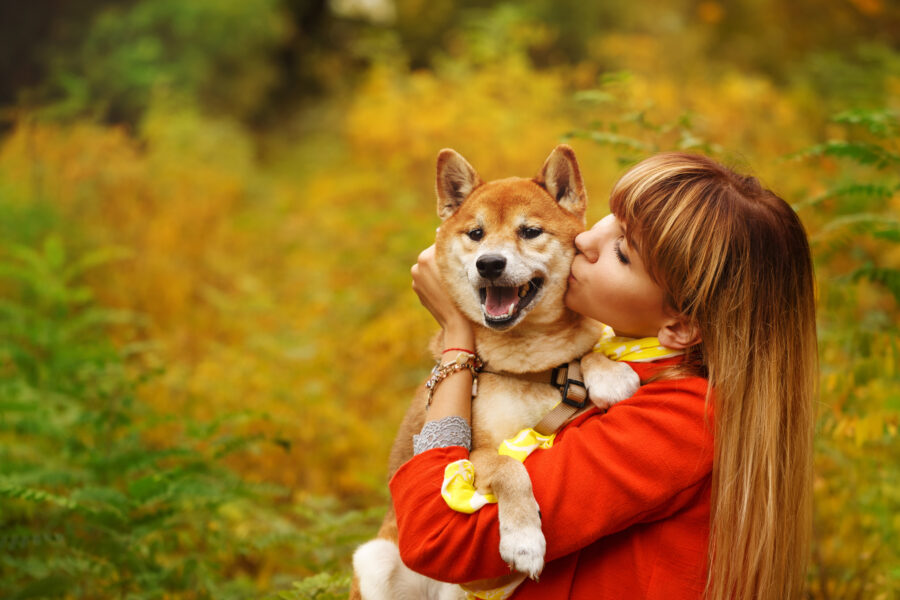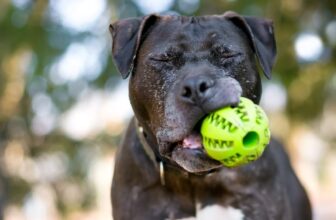
Check out our latest products
The way you raise your dog often mirrors the care you received in childhood.
Have you ever wondered why you treat your dog the way you do? The way you nurture, control, train, or spoil your four-legged friend often reflects your childhood experiences. It mirrors the way your parents raised you. Recent research involving nearly 400 dog caregivers reveals a fascinating truth: upbringing influences dog parenting styles.
The cycle of permissive parenting
The study found a strong pattern. Those raised with a permissive style often raise their dogs the same way. Permissive parenting means fewer rules and more freedom, often motivated by love and protection. This approach passes from one generation to the next. It creates a cycle of indulgence and leniency.
If you grew up with few boundaries, you may let your dog get away with behaviors others might not. This insight invites reflection: do your childhood experiences shape your dog’s boundaries? Recognizing this can help you decide if your approach truly benefits your dog’s well-being or simply replicates old habits.
The role of your attitude towards dogs
Your orientation toward dogs influences your caregiving style. Those with a protectionist attitude tend to avoid strict, authoritarian methods. Instead, they lean toward nurturing and safeguarding their dogs, often compensating for harsh experiences they faced as children.
This humanistic and protectionist mindset encourages kindness but can sometimes lead to permissive behaviors that overlook essential training. Balancing compassion with clear expectations helps dogs feel safe and confident, reducing anxiety and behavioral issues.
Childhood memories shape how you parent your dog
In the study, dog caregivers shared powerful stories about how childhood memories shape their dog parenting. Many shared how their experiences with parents — whether warm or strict — shaped how they interact with their dogs. Some consciously strive to break negative cycles, while others unconsciously repeat familiar patterns.
This emotional connection highlights the importance of self-awareness in caregiving. Reflecting on your past helps create a healthier, more balanced relationship. It fosters trust and mutual respect.
Practical tips to build a stronger bond
Understanding these patterns offers you a chance to improve your dog’s life and your mutual relationship. Start by observing your reactions and rules — do they reflect your childhood or your dog’s needs? Set clear boundaries with kindness and consistency. Seek guidance from positive trainers or behaviorists if you struggle with balancing protection and strictness.
Remember, your dog thrives when you provide structure wrapped in love. This approach nurtures confidence, reduces stress, and deepens your connection.
Upbringing influences dog parenting styles more than you realize. Recognizing inherited patterns can help you gain the power to change them. This transformation benefits both you and your dog, creating a relationship rooted in understanding, respect, and genuine care.
Post Views: 134
Animal Wellness is North America’s top natural health and lifestyle magazine for dogs and cats, with a readership of over one million every year. AW features articles by some of the most renowned experts in the pet industry, with topics ranging from diet and health related issues, to articles on training, fitness and emotional well being.



![[PETHROOM] Cat Nail Clipper Trimmer for Indoor Cats with Circular Cut Hole (2mm) | Premium Sturdy Stainless Steel Blade Cat Claw | Safe, Easy, Accurate, Quiet & Fast | Avoid Overcutting](https://m.media-amazon.com/images/I/6156hi88deL._AC_SL1298_.jpg)
![[PETHROOM] Professional Eye Comb for Pets | Stainless Steel Tear Stain Remover for Cats & Dogs | Gentle Round-Head Grooming Tool | Compact & Portable for Eye Gunk Removal](https://m.media-amazon.com/images/I/71+W758uwXL._SL1500_.jpg)









